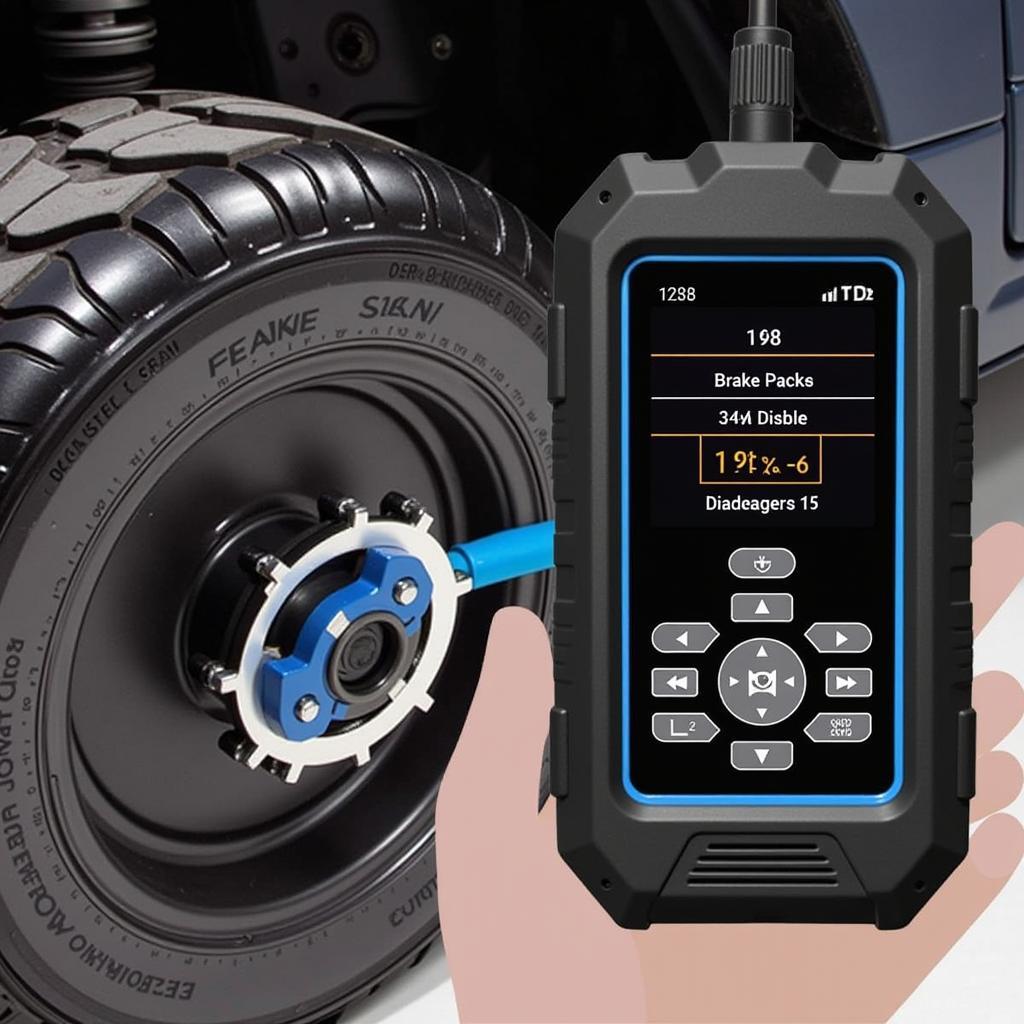Electronic brake systems have become increasingly complex, demanding specialized tools to diagnose and repair them. Electronic brake scan tools are essential for mechanics and automotive professionals, providing a comprehensive solution for accessing and manipulating electronic brake control modules (EBCMs). In this comprehensive guide, we will explore the world of electronic brake scan tools, covering everything from their basics to their advanced functionalities and essential features.
What is an Electronic Brake Scan Tool?
An electronic brake scan tool is a specialized diagnostic device used to access and communicate with the electronic brake control system in modern vehicles. These tools allow mechanics to read and clear diagnostic trouble codes (DTCs), monitor live data streams, and perform various programming and calibration procedures related to the electronic brake system.
Why Use an Electronic Brake Scan Tool?
Electronic brake scan tools offer numerous advantages for automotive professionals, including:
- Accurate Diagnosis: Electronic brake systems rely heavily on complex electronics. These scan tools provide a clear and detailed view of the brake system’s health, helping mechanics pinpoint the exact issue.
- Efficient Troubleshooting: With access to real-time data and detailed diagnostic codes, mechanics can quickly identify the cause of brake problems, eliminating guesswork and saving time.
- Advanced Functionality: Electronic brake scan tools can perform a range of tasks beyond basic diagnostics, such as activating, calibrating, and resetting electronic parking brakes, adjusting brake pad wear sensors, and even bleeding brakes.
- Increased Efficiency: By streamlining the diagnostic and repair process, these tools can help mechanics work more efficiently, ultimately improving customer satisfaction.
Key Features of an Electronic Brake Scan Tool
- Compatibility: Ensure the tool supports your specific vehicle make and model.
- Data Stream Monitoring: The ability to view real-time data from the EBCM provides valuable insights into system performance.
- DTC Retrieval and Clearing: This essential feature allows mechanics to identify and address brake system issues.
- Actuator Testing: The ability to test individual components, like brake solenoids and motors, helps diagnose malfunctions.
- Programming and Calibration: Some tools offer programming features, enabling adjustments to specific brake system parameters.
Choosing the Right Electronic Brake Scan Tool
The ideal electronic brake scan tool depends on your specific needs and budget. Here are some factors to consider:
- Vehicle Coverage: Ensure the tool supports the vehicles you work on.
- Functionality: Consider the specific features you need, such as programming, actuator testing, or advanced data analysis.
- User Interface: Choose a tool with a user-friendly interface that is easy to navigate and understand.
- Price: Electronic brake scan tools can vary in price, so set a budget and choose a tool that offers the best value.
Electronic Brake Scan Tool Applications
Electronic brake scan tools are indispensable for a wide range of automotive tasks:
- Diagnosing Brake Problems: Accurately identify the root cause of brake system malfunctions, including brake light warnings, ABS problems, and electronic parking brake issues.
- Performing Maintenance: Reset brake pad wear sensors, adjust electronic parking brake settings, and calibrate brake systems after repairs.
- Advanced Diagnostics: Access comprehensive real-time data streams, perform actuator tests, and analyze braking patterns to identify potential problems before they become major issues.
- Troubleshooting Complex Issues: Utilize specialized functions to diagnose and repair complex electronic brake system issues, such as ABS system malfunctions or electronic parking brake errors.
Expert Insight from [Expert Name]
“Electronic brake scan tools have revolutionized the way we diagnose and repair brake systems,” says [Expert Name], a leading automotive technician with over 20 years of experience. “[Expert Name] continues, “These tools are not just for complex issues but also for routine maintenance, ensuring brake systems operate at peak performance.”
Frequently Asked Questions (FAQs)
Q: Can I use a generic scan tool for electronic brake diagnostics?
A: While some generic scan tools might offer basic brake system diagnostics, a dedicated electronic brake scan tool is recommended for comprehensive and accurate analysis.
Q: How often do I need to use an electronic brake scan tool?
A: It’s recommended to use an electronic brake scan tool during routine maintenance, especially when checking brake pads and replacing brake components.
Q: Are electronic brake scan tools difficult to use?
A: Modern electronic brake scan tools are designed with user-friendly interfaces, making them relatively easy to operate.
Q: What are some popular brands of electronic brake scan tools?
A: Some popular brands include [brand 1], [brand 2], and [brand 3], each offering a variety of features and price points.
In Conclusion
Electronic brake scan tools are essential tools for modern automotive professionals, providing the accuracy, efficiency, and advanced functionality needed to diagnose, maintain, and repair electronic brake systems. Choosing the right tool depends on your needs and budget, but investing in a dedicated electronic brake scan tool will save you time, ensure accurate diagnoses, and enhance your ability to provide exceptional service to your customers.
 Electronic brake scan tool
Electronic brake scan tool
Remember, electronic brake systems are complex and require specialized tools for accurate diagnoses and repairs. Invest in an electronic brake scan tool today and elevate your automotive repair capabilities. If you need assistance with selecting the best tool for your needs, contact us for expert advice and support.
Disclaimer: This article is intended for informational purposes only and should not be considered as professional advice. Always consult with a qualified automotive technician before performing any repairs or modifications on your vehicle.


